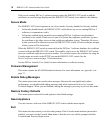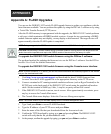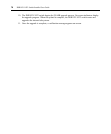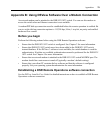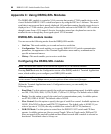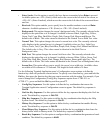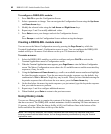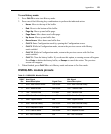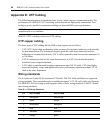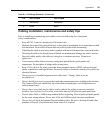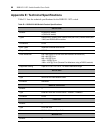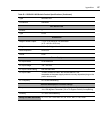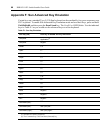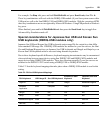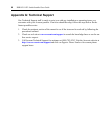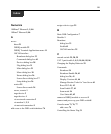
84 DSR1021/1022 Switch Installer/User Guide
Appendix D: UTP Cabling
The following information is intended to brief you on various aspects of connection media. The
performance of a DSR1021/1022 switching system depends on high quality connections. Poor
quality or poorly installed or maintained cabling can diminish DSR system performance.
NOTE: This appendix is for information purposes only. Please consult with your local code officials and cabling
consultants prior to any installation.
DSR1021/1022 switching systems use UTP cabling.
UTP copper cabling
The three types of UTP cabling that the DSR switch supports are as follows:
• CAT 5 UTP (4-pair) high performance cable consists of twisted pair conductors used primarily
for data transmission. The twisting of the pairs gives this cable some immunity from the
infiltration of unwanted interference. CAT 5 cable is generally used for networks running at 10
or 100 Mbps.
• CAT 5E (enhanced) cable has the same characteristics as CAT 5, but is manufactured to
somewhat more stringent standards.
• CAT 6 cable is manufactured to tighter requirements than CAT 5E cable. CAT 6 has higher
measured frequency ranges and significantly better performance requirements than CAT 5E
cable at the same frequencies.
Wiring standards
The 8-conductor (4-pair) RJ-45 terminated UTP cable: EIA/TIA 568A and B has two supported
wiring standards. These standards apply to installations using CAT 5, 5E and 6 cable specifications.
The DSR1021/1022 switching system supports either of these wiring standards.
Table D.1 details
these wiring standards.
Table D.1: UTP Wiring Standards
Pin EIA/TIA 568A EIA/TIA 568B
1 white/green white/orange
2 green orange
3 white/orange white/green
4 blue blue
5 white/blue white/blue
6 orange green



